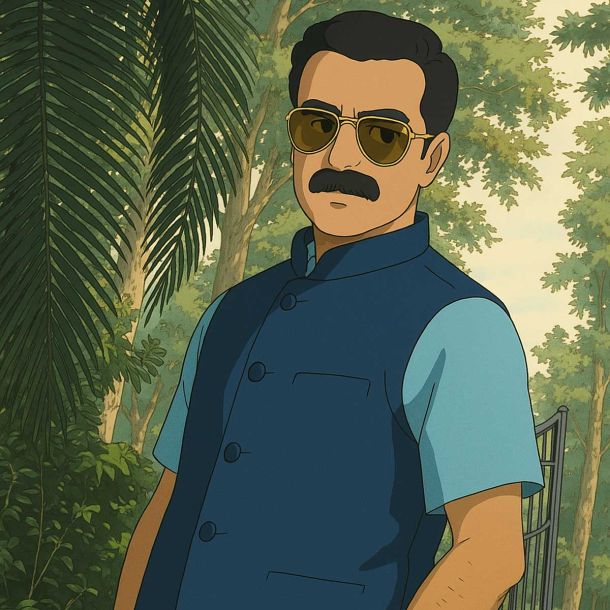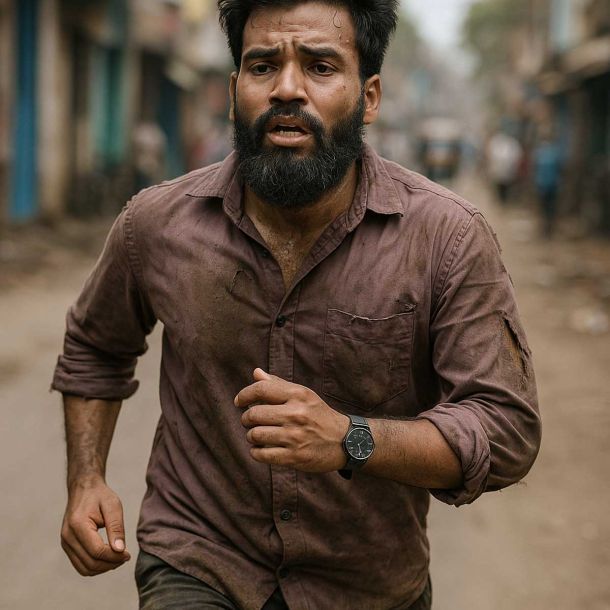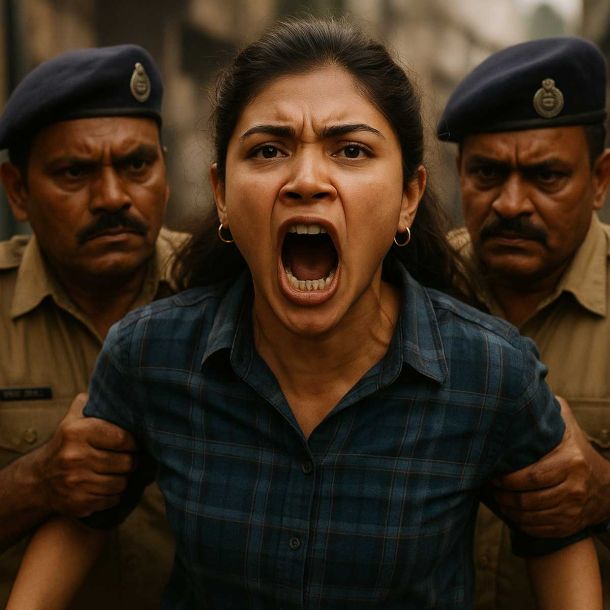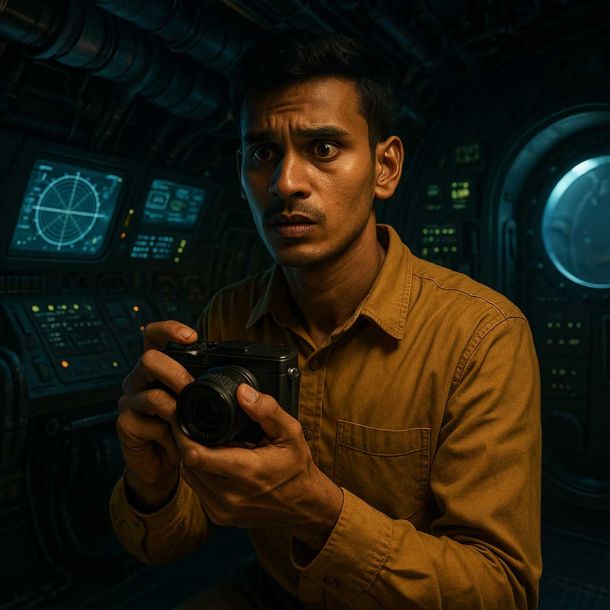More Coverage
Twitter Coverage
Satyaagrah
Written on
Satyaagrah
Written on
Satyaagrah
Written on
Satyaagrah
Written on
Satyaagrah
Written on
Join Satyaagrah Social Media
"Unsung Warrior": In the tapestry of resilience, meet Devika Rotawan—a luminous thread forged in the crucible of darkness; at just 11, she bravely testified against Ajmal Kasab, etching her name in the annals of courage amid harrowing 26/11 terror attack
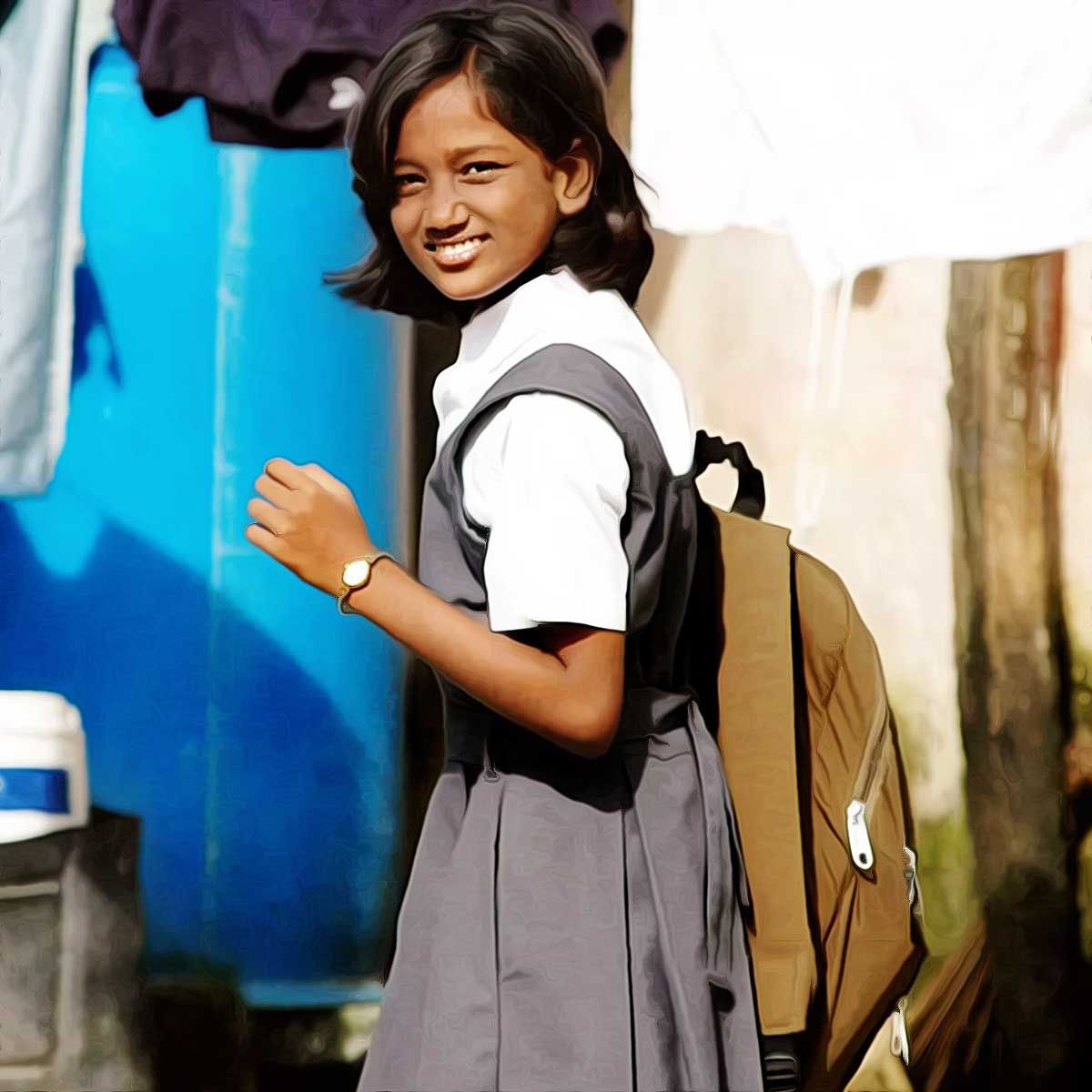
The haunting memories of the 26/11 terror attacks still linger in the collective consciousness of the nation. In 2008, Mumbai became the unfortunate battleground for a series of meticulously planned and executed terrorist attacks by Pakistani extremists. These assailants, fueled by a malevolent ideology, targeted multiple locations, leaving a trail of destruction, despair, and loss. Among the iconic landmarks marred by this violence was the Taj Mahal Palace Hotel, and the toll on human lives was devastating, with 166 people losing their lives and hundreds more left injured.
In the aftermath of this unprecedented tragedy, a name emerged not from the ranks of seasoned investigators or political figures but from the innocence of childhood - Devika Rotawan. At the tender age of nine, she found herself thrust into the heart of darkness as a witness in the case against Ajmal Kasab, the lone terrorist captured alive during the attacks.
Ajmal Kasab's capture presented a rare opportunity for justice to prevail. However, it was the courage and resilience of Devika Rotawan that added a human touch to the legal proceedings. In a courtroom filled with tension and grief, this young girl stood as the beacon of truth. Her testimony not only confirmed the identity of Ajmal Kasab but also symbolized the indomitable spirit of a nation grappling with the aftermath of unspeakable horror.
Devika Rotawan's role in the trial was pivotal. As the youngest witness in a case that shook the foundations of the nation, her words carried weight that transcended her tender age. The courtroom, typically a domain of legal intricacies and adult deliberations, bore witness to a child shouldering the burden of truth. Devika Rotawan, with a maturity beyond her years, recounted the events she had witnessed during those fateful days. Her unshakeable testimony provided a crucial link in the chain of evidence against the perpetrator.
The significance of Devika's testimony went beyond the confines of the courtroom. It became a testament to the resilience of the human spirit in the face of terror. The nation witnessed a young girl confronting the demons of her past, standing resolute against the malevolence that had attempted to shatter the very fabric of society. Devika Rotawan, in her quiet strength, became a symbol of hope and an embodiment of the collective will to overcome adversity.
As we delve into the story of Devika Rotawan, we not only unravel the harrowing details of a dark chapter in our history but also salute the unsung heroes like her, whose courage and determination ensure that the light of justice continues to shine even in the darkest corners. In the next sections, we will explore the impact of her testimony and the broader implications for a society scarred by the specter of terrorism.
As the 15th anniversary of the Mumbai terror attacks unfolds, we find Devika Rotawan navigating the challenges of adulthood at 24, a poignant reminder that the scars of that fateful night still linger. Despite the passing years, Devika grapples with the aftermath on multiple fronts, illustrating the profound and enduring impact such traumatic events can have on an individual's life.
|
"The shooting at Chhatrapati Shivaji Maharaj Terminus in Mumbai"
For Devika Rotawan, every day is a testament to resilience and survival. The horrific events of that night are not confined to the annals of history but persist as a vivid and haunting memory. The trauma is not merely a chapter in a distant past; it's an ever-present shadow that looms over her life. The scars of that night are etched not only in Devika's memory but resonate through the collective consciousness of her entire family.
Devika's journey into the abyss of terror began against the backdrop of personal tragedy. Losing her mother to illness at the tender age of seven, she found herself in a world where her father, the sole provider, sold dry fruits to sustain the family. However, their struggle intensified as Devika battled health issues, necessitating frequent hospital visits. The weight of responsibility on her father's shoulders grew, creating a delicate balance between earning a livelihood and caring for a daughter plagued by ailments.
On that ominous night at Chhatrapati Shivaji Maharaj Terminus, a transportation hub that transformed into a theater of terror, Devika's life took another cruel turn. Alongside her father and brother, she awaited a train to Pune when the deafening explosion shattered the ordinary calm of a railway station. The echoes of gunshots that followed resonated far beyond the station walls, marking the beginning of an ordeal that would leave an indelible mark on her young soul.
The narrative of that night extends beyond the immediate terror; it is a story of survival, of a family torn apart by circumstances beyond their control. Devika, a witness to unspeakable horrors, emerged from the shadows of that traumatic night with a resilience that defied the cruelty of fate.
The night at Chhatrapati Shivaji Maharaj Terminus plunged into chaos as the deafening sounds of gunshots shattered the ordinary calm. In an instant, lives were altered, and the ordinary hustle and bustle of the station transformed into a scene of unimaginable horror. Devika Rotawan, her father, and brother became unwilling witnesses to a nightmare as they saw individuals being mercilessly shot, collapsing in distress, and others fleeing for their lives. The platform, once a symbol of routine travel, now bore witness to the harrowing chaos of an unfolding tragedy.
Amidst the pandemonium, a single bullet found its mark, striking Devika Rotawan in her right leg. The impact was immediate, causing her to collapse, and in that moment of crisis, her father and brother rushed to her aid. However, in the midst of the unfolding tragedy, Devika's gaze met the perpetrator - the one responsible for the carnage. It was none other than Ajmal Kasab, a face etched in the nation's memory as the Lashkar-e-Taiba terrorist who callously targeted innocent lives.
The encounter with Kasab was a chilling and personal confrontation with terror for Devika Rotawan. The chaos and violence that unfolded before her eyes left an indelible mark on her psyche. In her moment of vulnerability, she became a living testament to the indiscriminate brutality inflicted by the terrorists. Kasab's cold and calculated actions, shooting people at random, reinforced the gravity of the situation and the magnitude of the threat faced by those present at the station.
The night at Chhatrapati Shivaji Maharaj Terminus marked the beginning of a long and arduous journey for Devika. The physical wounds inflicted by that bullet were not just a testament to her ordeal but also a symbol of her resilience in the face of adversity. Little did she know that this traumatic experience would later propel her into the spotlight, as she emerged as a crucial figure in the legal pursuit of justice against Ajmal Kasab.
As the trials against Kasab commenced, Devika Rotawan found herself thrust into the public eye, becoming the youngest witness in the case. Her testimony, delivered with unwavering determination, confirmed the identity of the terrorist in the eyes of the court. The nation, gripped by the unfolding legal drama, turned its attention to this young girl who had faced unimaginable horrors and emerged as a beacon of truth.
Media reports brought Devika Rotawan's story to the forefront, amplifying her voice and turning her into a symbol of resilience in the face of terror. A poignant image of her, relying on crutches to reach the court, became a powerful visual encapsulation of her strength and determination. In the upcoming sections, we will explore the aftermath of her testimony and the broader implications of her role in the pursuit of justice.
|
Devika Rotawan's Journey Beyond the Bullet Wounds - The aftermath of the attack
The aftermath of the Chhatrapati Shivaji Maharaj Terminus attack left Devika Rotawan grappling not only with physical wounds but also with the profound disruption of her normal life. Hospitalized for a staggering 65 days to recover from the bullet injury, she confronted the harsh reality of her altered existence. Devika's resilience, however, manifested in her unwavering resolve to transform her traumatic experience into a catalyst for positive change. She harbored a profound aspiration – to become an IPS officer and actively combat the malevolence entrenched in society.
Yet, Devika's pursuit of education faced numerous challenges. Even before the attacks, her schooling was punctuated by frequent gaps, primarily due to prolonged bouts of illness. Post-attack, the gaps took a different form – a result of the debilitating leg injury she sustained that fateful night. Despite these adversities, she re-entered the realms of education at the age of 11, displaying an indomitable spirit that refused to succumb to the shadows of terror.
However, fate had more trials in store for Devika. A resilient survivor, she faced another formidable adversary – a three-year battle against contracted tuberculosis. This health ordeal necessitated further hospital visits, adding to the already considerable challenges she faced. Remarkably, in 2014, Devika emerged victorious from this battle, showcasing her tenacity to overcome not only the physical scars but also the health setbacks that threatened to derail her dreams.
Presently, Devika stands as a final-year student in a BA course at Chetna College in Bandra, Mumbai. Her journey from the hospital bed to the classroom epitomizes the triumph of the human spirit over adversity. The pursuit of education became not just a means to academic achievement but a testament to her refusal to be defined by the traumas of her past.
The family, once residing in a chawl in a Bandra slum, underwent a significant shift in their living conditions. They now inhabit a rented 1BHK flat in a residential building in Santacruz. However, their battle for stability is far from over, as they continue to navigate a legal challenge to secure their own home from the state government.
Devika's family structure reflects both the resilience and interconnected support systems that have been pivotal in their journey. Two elder brothers form a crucial part of her life – one residing in Pune with his family, while the other, despite facing physical disabilities, works at a stationary shop in Mumbai to contribute to the family's sustenance. Devika, her handicapped brother, and her father share a common bond of strength and solidarity, navigating the complexities of life with a determination that refuses to waver.
|
Navigating Realities: The current plight of Devika Rotawan
Devika Rotawan, once harboring dreams of becoming an IPS officer, now finds herself standing at a crossroads shaped by the intricate dance of responsibilities and aspirations. Life, with its unpredictable turns, has burdened her with the weight of familial obligations, especially as her father ages and the mantle of support increasingly falls upon her shoulders. The pursuit of her ambitions encounters the stark realities of daily life, where time for exam preparations is a luxury she can ill-afford, and the absence of dedicated support further compounds the challenges she faces. In the midst of these complexities, Devika is currently in search of a job, a testament to her resilience and determination to navigate the current chapter of her life.
The journey from trauma survivor to an aspiring civil servant is not a linear trajectory, and Devika's evolving circumstances reflect the dynamic nature of life's challenges. When questioned about the perceived deviation from her publicly declared aim of becoming an IPS officer, Devika responds with a poignant perspective. She asserts, "They don't know the struggle I have been through all these years." This statement encapsulates the depth of her experience, the unseen battles fought in the shadows of public attention, and the relentless perseverance required to navigate a path marred by adversity.
Amidst the struggle to survive and provide for her family, the exigencies of life have left Devika with minimal room to prepare for civil service exams, a reality that underscores the delicate balance between ambition and necessity. The judgmental fingers pointed her way fail to grasp the nuanced intricacies of her journey – a journey marked by resilience, tenacity, and an unwavering commitment to overcoming the hurdles life has thrown her way.
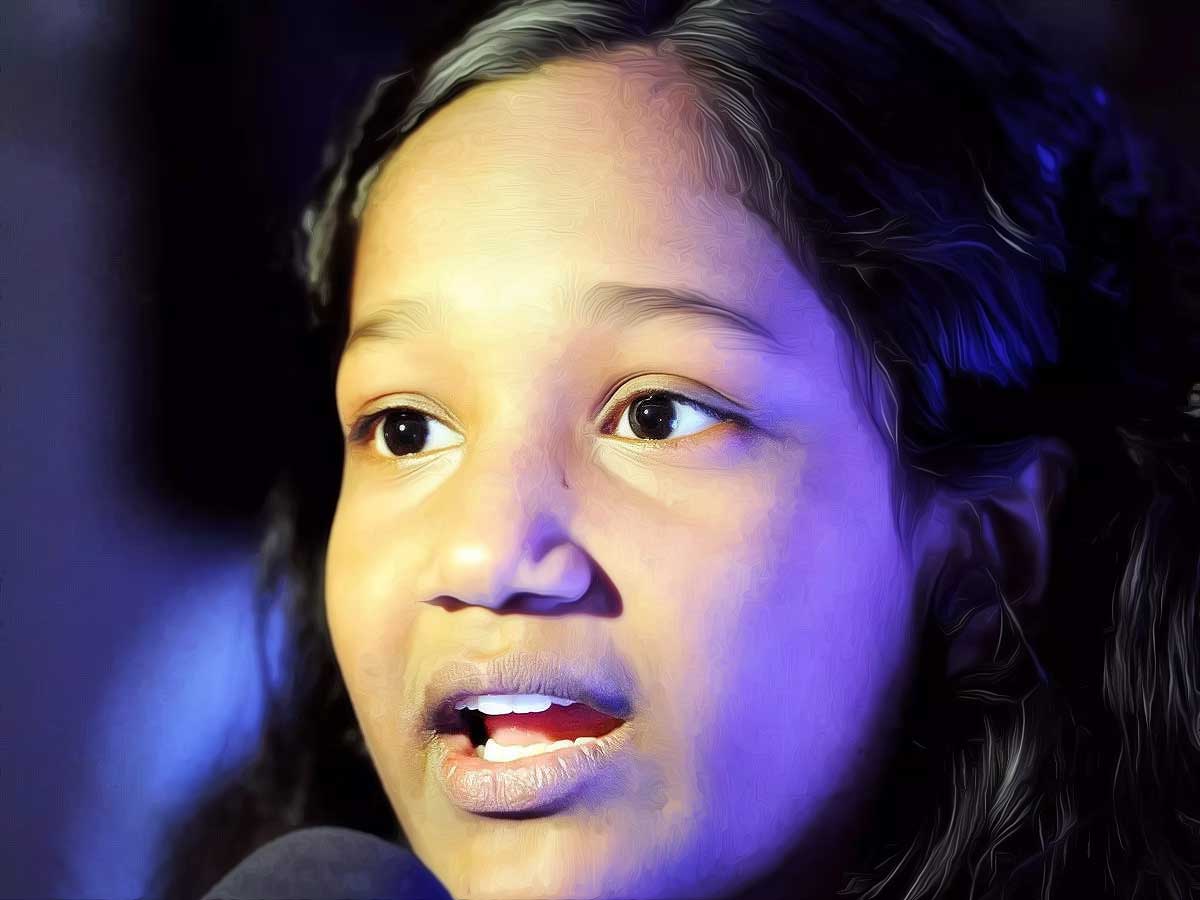 |
Witnessing Injustice: Devika Rotawan's Glimpse into the Flaws of the Judiciary System
As a key witness in the trials against Ajmal Kasab, Devika Rotawan found herself thrust into the heart of the Indian judiciary system at a remarkably young age. However, the experience was not just a legal process for her; it became a harsh revelation of the flaws within the system that she could discern even in her youth.
In her poignant reflection on the aftermath of the 26/11 attacks, Devika articulates the disparity between the life of Ajmal Kasab in prison and the ongoing struggles faced by her and her father outside. She voices the societal isolation they encountered due to their role as witnesses who identified Kasab. This isolation extended to the most basic aspects of life - finding a house, securing admission to a school, and even expecting support from relatives became arduous tasks.
Describing her agony she said, “Ajmal Kasab was living well in prison, whereas our life outside was a struggle. Just because my father and I were among the witnesses who identified Kasab, we were looked at differently. People feel we are facing some death threat and it might harm them if they are associated with us in any way. Finding a house, a school and even expecting support from relatives was difficult.”
She added, “When I was on the witness stand and Kasab sitting close to the judge, I wanted to throw a crutch at him or shoot him. Now I know how important it was to have him alive to know more details. There is still no peace. Kasab was just one person sent for the job. What are we doing about the masterminds? Unless all such activities are stopped, there is no guarantee that there will not be another terror attack.”
Devika's testimony provides a chilling glimpse into the psychological toll of being associated with a high-profile case. The perceived threat and the ensuing societal ostracization created a life fraught with difficulties. The public perception, colored by fear and apprehension, added another layer to the already complex challenges Devika and her family faced.
In a moment of raw honesty, Devika shares the inner turmoil she experienced during the trial. She admits to a visceral desire to retaliate against Kasab, to physically express the anger and agony she felt. This confession unveils the human side of a witness who had to confront the face of terror in a courtroom. Her revelation also underscores the internal struggle between the pursuit of justice and the overwhelming emotional burden borne by those directly affected by acts of terror.
Devika's astute observation about Kasab being just one piece in a larger puzzle highlights a crucial aspect of counter-terrorism efforts. She emphasizes the need to address the masterminds behind such attacks and the systemic issues that perpetuate terrorism. Her statement serves as a sobering reminder that the pursuit of justice is an ongoing battle, and the eradication of terrorism requires a comprehensive approach that goes beyond individual perpetrators.
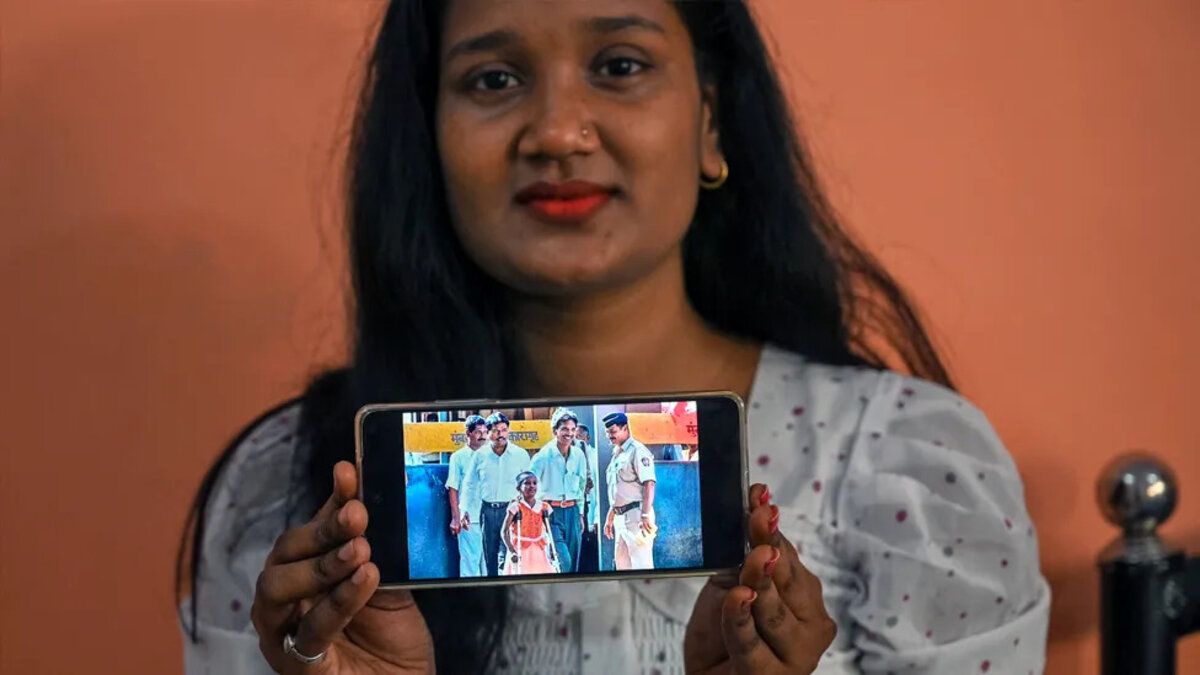 |
Unseen Scars: Devika Rotawan's Enduring Struggle Beyond Kasab's Execution
It remains a historical note that Ajmal Kasab met his fate on the gallows on November 21, 2012, a culmination of a legal process that began with Devika Rotawan's courageous testimony. However, the echoes of that harrowing night and its aftermath continue to reverberate in the life of Devika and her family.
She said, “A lot of people supported us, a lot of people did not, some supported us just for exhibition. My wounds haven’t healed in these 15 years. They are as fresh as ever. I am still struggling.”
In her poignant reflection, Devika acknowledges the varied responses from society, ranging from support to indifference, with some extending their backing merely for public display. The scars she carries, both visible and unseen, persist despite the passage of 15 years. The wounds, she emphasizes, are as raw and agonizing as ever, a stark testament to the enduring impact of the 26/11 terror attacks on the lives of those directly affected.
As we collectively mark the 15th anniversary of the 26/11 terror attacks, Devika Rotawan emerges not just as a witness but as a symbol of the ongoing struggle faced by survivors and witnesses. Her plea for societal recognition and support is a poignant reminder that the aftermath of such traumatic events extends far beyond the immediate aftermath.
The societal responsibility, as underscored by Devika, lies in identifying and acknowledging the plight of individuals like her who continue to grapple with the aftermath of terror. Beyond the commemoration of anniversaries, there exists a pressing need to address the ongoing struggles of those who were witnesses to one of the darkest chapters in Indian history.
Devika's dream of completing her aspirations remains elusive in the absence of adequate support systems. The bureaucracy's failure to provide a follow-up and ensure due state aid leaves her aspirations dangling, highlighting the systemic challenges survivors face long after the legal processes conclude.
It is crucial for society to recognize the profound impact of witnessing and surviving acts of terror, acknowledging that the struggle does not conclude with legal verdicts or the execution of perpetrators. The Rotawan family's continued struggle for survival serves as a stark reminder of the ongoing challenges faced by those who bear witness to the darkest facets of humanity.
In conclusion, Devika Rotawan's journey encapsulates not just personal resilience but also the systemic gaps that demand our attention. As we reflect on the 26/11 terror attacks, let us not only remember the events but also strive for a society that supports, uplifts, and acknowledges the ongoing struggles of survivors like Devika, ensuring that their stories are not relegated to the shadows of history.
 Support Us
Support Us
Satyagraha was born from the heart of our land, with an undying aim to unveil the true essence of Bharat. It seeks to illuminate the hidden tales of our valiant freedom fighters and the rich chronicles that haven't yet sung their complete melody in the mainstream.
While platforms like NDTV and 'The Wire' effortlessly garner funds under the banner of safeguarding democracy, we at Satyagraha walk a different path. Our strength and resonance come from you. In this journey to weave a stronger Bharat, every little contribution amplifies our voice. Let's come together, contribute as you can, and champion the true spirit of our nation.
 |  |  |
| ICICI Bank of Satyaagrah | Razorpay Bank of Satyaagrah | PayPal Bank of Satyaagrah - For International Payments |
If all above doesn't work, then try the LINK below:
Please share the article on other platforms
DISCLAIMER: The author is solely responsible for the views expressed in this article. The author carries the responsibility for citing and/or licensing of images utilized within the text. The website also frequently uses non-commercial images for representational purposes only in line with the article. We are not responsible for the authenticity of such images. If some images have a copyright issue, we request the person/entity to contact us at This email address is being protected from spambots. You need JavaScript enabled to view it. and we will take the necessary actions to resolve the issue.
Related Articles
- Campus Front of India group carries out rally promoting violence against UP CM Yogi Adityanath
- "Karma is a mirror through which you can see your reflection": Mullah Yaqub called the Durand Line an “Imaginary Line” between Afghanistan & India by Sir Mortimer Durand, a secretary of the British Indian government, and Abdur Rahman Khan in Nov 12, 1893
- In a major breakthrough, Police have recovered IEDs smuggled across the border to Pakistan backed terrorist sleeper cells, linked to Dawood Ibrahim’s terror module: a number of explosives have also made their way into Gujarat via the water route
- Haunting history- 50 years of Operation Searchlight in Dhaka
- Rare footage of Pakistan Army surrendering to Indian Armed Forces after the humiliating defeat in 1971 war: Vijay Diwas
- Aatish Taseer shows how his ‘jamaat’ has mastery over playing victim, brands Bollywood pro-Modi even as it remains anti-Hindu
- "Our values and way of life will prevail – terrorism will not": 3 J&K government employees sacked for aiding Pakistani terrorists, Faheem Aslam, the PRO of Kashmir University, Murawath Hussain from the Revenue Department, and Police Constable Arshid Ahmad
- Congress-led Chhattisgarh government’s plans to allot government land to Pakistan-based Dawat-e-Islami banged after local BJP leaders opposed any such moves
- Srinagar Police arrested local hybrid terrorists affiliated with the terror outfit The Resistance Front (TRF), an offshoot of Lashkar-e-Taiba: Recovered arms, ammunition, and incriminating material
- Supported the United States-led ‘war on terror’ in Afghanistan for ‘dollars’ and not in “public interest”: PM Imran Khan regrets
- US Justice Department takes down 36 Iranian websites from Iranian Islamic Radio and Television Union and KH: Read full details
- ‘Pakistan wants no hostility with India for 100 years, but rapprochement with India not possible when Modi govt is in power’: Pakistan to unveil its first-ever National Security Policy
- Violence Against Minority Hindus in Bangladesh: The Mistier World Of Silence
- 'Why don't you kill Hindus' - Pakistani teachers teaches to Muslim students, one journalist's ordeal
- Moplah Genocide of the Malabar Hindus, 1921: Thousands of Hindus slaughtered
